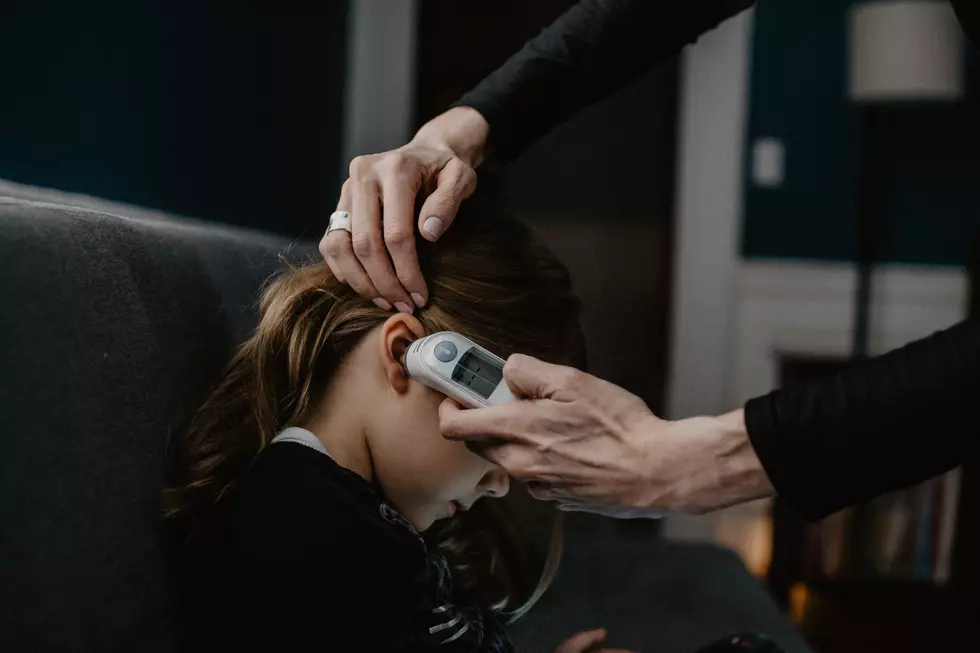
This Contagious Virus Is Spreading in Lubbock
As temperatures continue to climb, pediatricians are also noting a rise in the number of cases of Hand, Foot and Mouth Disease here in the Hub City.
Dr. Karen Talusan-Soriano with Covenant Medical Group states that it seems to be "the flavor of the month" right now. This virus is highly contagious, especially in young children under the age of five. However, it can be spread to adults when the conditions are right.
Signs and Symptoms of Hand, Foot and Mouth Disease
As the name implies, Hand, Foot and Mouth Disease (HFMD) is a virus that stereotypically causes a rash to form on the hands and feet. It also brings the uncomfortable symptom of blister-like sores in the mouth, along with a fever, poor appetite and a general feeling of being unwell. Additionally, the rash can spread to the child's trunk, arms, legs and even their diaper region.
Symptoms normally appear just a few days after exposure and, unfortunately, this illness is spread through the transmission of bodily fluids. As we all know, young kids seem to always have something in their mouths -- their hands, feet, toys, anything really. However, sneezing, kissing and coughing can also cause this virus to spread.
How to Treat Hand, Foot and Mouth Disease
Since this is a virus, there's no magical pill that will make the illness go away. You just have to wait for it to run its course and treat the symptoms as best you can. This will include pain relievers to help lessen discomfort and lower your toddler's fever. Always consult with your pediatrician before administering any medications to your child.
Most importantly, Dr. Talusan-Soriano notes that dehydration can occur due to the discomfort that your child experiences from the sores in their mouth. Thus, keeping your kids hydrated is job number one.
Cold liquids are always best for relieving some of the discomfort. You can also chill fruits that have a high water content like watermelon, grapes and oranges, or give them Pedialyte popsicles.
Additionally, this virus spreads quite easily, so it's also imperative that you keep your kids at home until they are completely well. This can take up to 10 days, so prepare yourselves.
Lastly, while mild cases of HFMD can be treated at home, if your child experiences a high fever, refuses to eat or drink or you don't see improvement, make sure to take them in to see their physician. However, infants under 6 months of age should always be taken into the doctor the moment you notice symptoms.
How to Prevent Hand, Foot and Mouth Disease
Parents always worry about the fall and winter months when flu and strep are prevalent, but Dr. Talusan-Soriano told me that "this illness is a really prevalent one during the spring and summer months." Interestingly enough, our recent rains may also be to blame. Research shows that both higher temperatures and an increased relative humidity are associated with an uptick in this virus every year.
While you can't prevent your kids from putting their hands in their mouths, you can be vigilant about hand washing and sanitizing surfaces as much as possible. Moreover, make sure that your kids are not sharing drinks or snacks this summer season.
The good news is that if your child does catch Hand, Foot and Mouth Disease, it normally resolves itself quickly so you can get back to your fun summer plans.
Simple Snack & Meal Ideas to Keep Your Kids Hydrated on Triple Digit Days
10 Places to Get Shaved Ice in Lubbock
12 Common Household Items That Need to Be Replaced Regularly
More From Lonestar 99-5 FM









